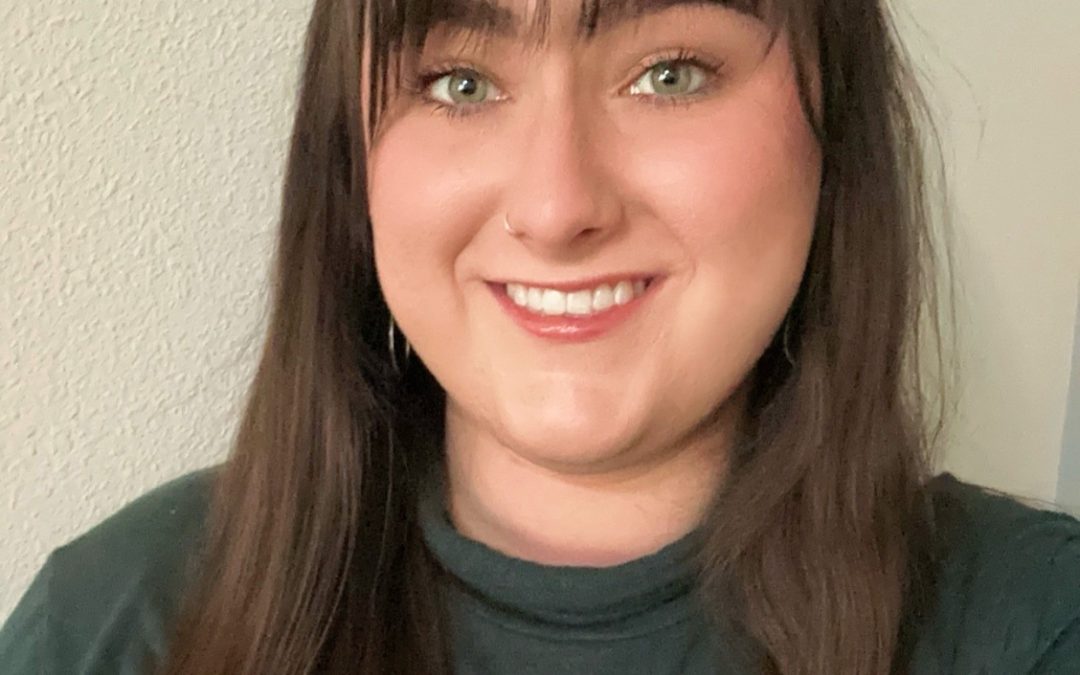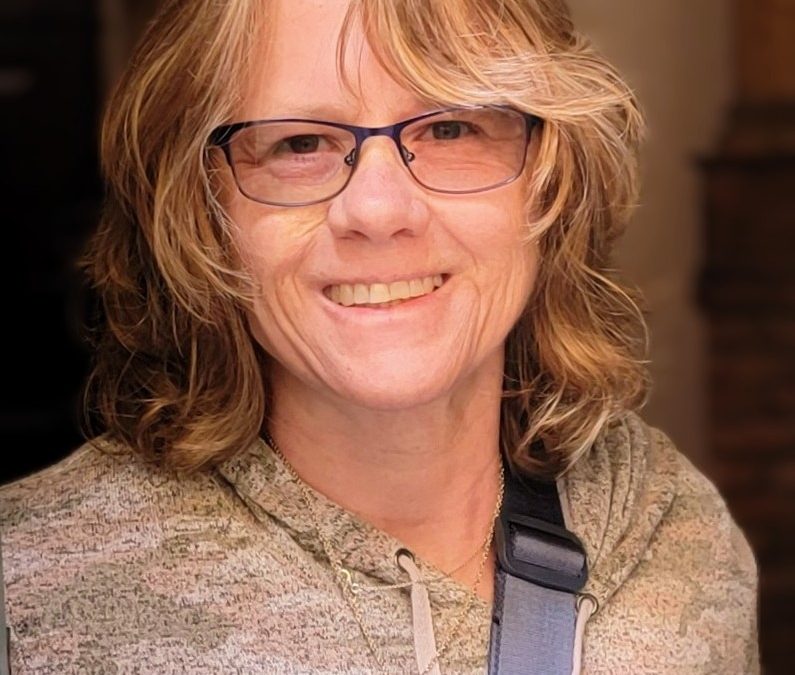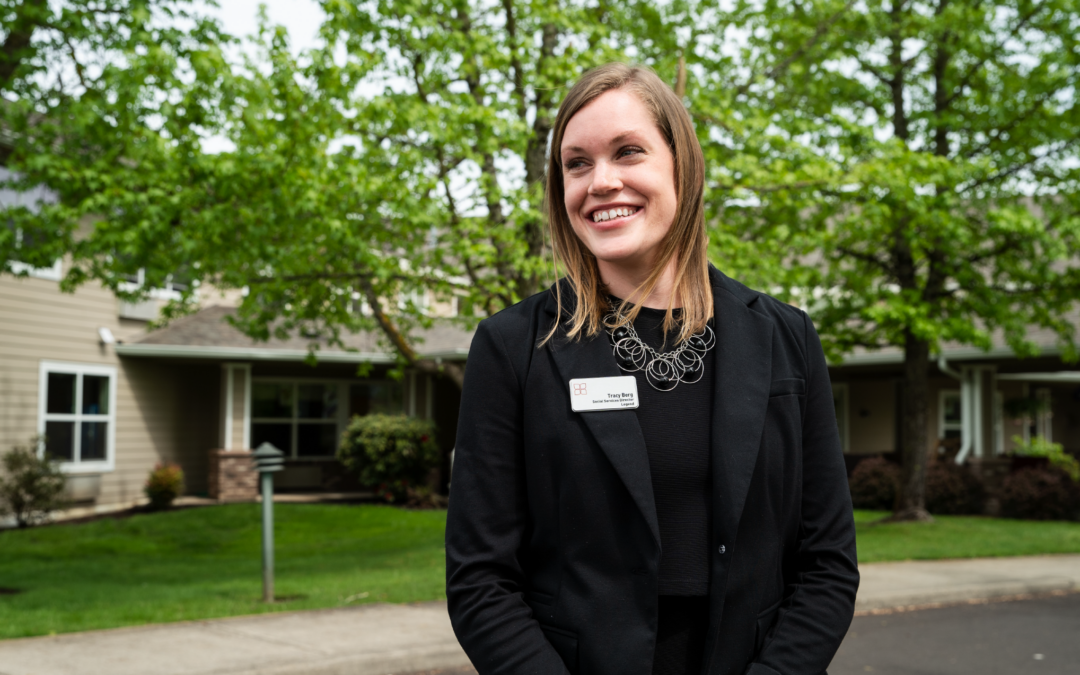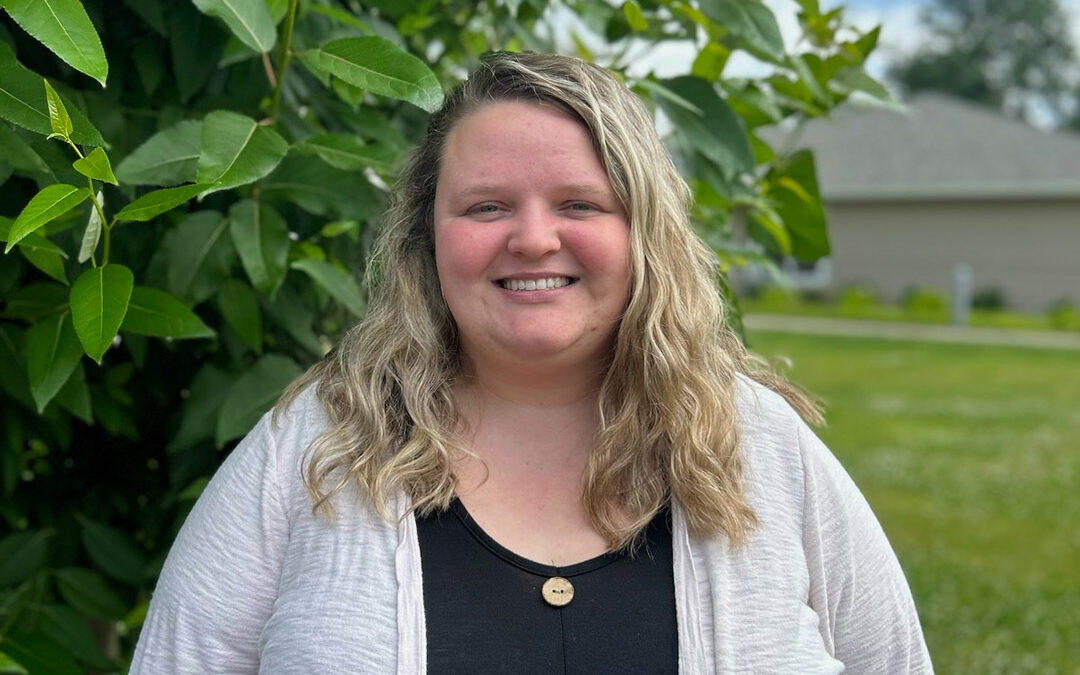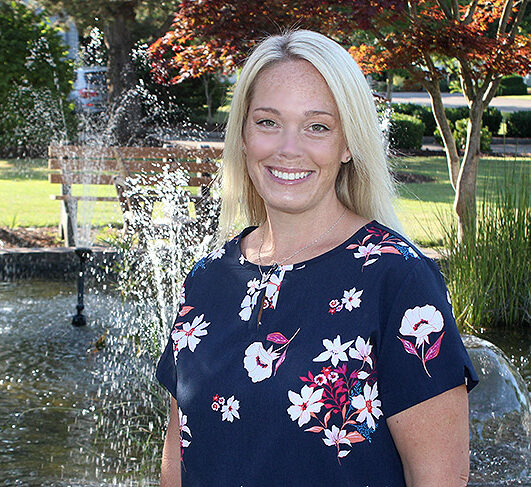Working as a nurse and resident care manager in long-term care was my second career. Before this, I was working as a pediatric dietitian in a hospital. I went from working with babies, toddlers, and adolescents to working with the elderly and I much prefer working with older adults, their family, and friends. The residents taught me how to slow down, take a look at things, and act instead of react. The way I interact with my own parents is very different now than it would have been before I was in this position. I think I’m a better person because of this work.
I graduated from nursing school in 2016. My preceptorship was in hospice, and when I was ready to finish, I didn’t want to leave. I discovered a passion for caring for people at the end of life in rural Oregon. I was hired as a floor nurse at the Oregon Veterans’ Home and worked there for about a year before going back to working in hospice.
When the pandemic started and everything shut down, after less than 4 months of working again in hospice, I came back to the Oregon Veterans’ Home as a floor nurse. After 3 months I was offered the resident care manager position in the memory care unit. It was a great learning opportunity; I didn’t think I would stick with it long-term, but I LOVED it.
I get the opportunity to get to know these residents and their families and build trusting relationships. I get to come to work every day and make connections, it’s a personal love of care for people in need. You get to build relationships with the residents that you might not have the opportunity to build in hospitals or hospices.
In nursing clinicals you are all over the place, so I chose to try hospice. I gained so many insights and learned from people who have been around for many years. They make me a better person. Now I can’t imagine myself doing anything else. Since I’ve become a resident care coordinator, I have had three other local offers to go into hospice and I turned them down because I’m completely satisfied with what I’m doing.
I get the opportunity to get to know these residents and their families and build trusting relationships. I get to come to work every day and make connections, it’s a personal love of care for people in need.
I had preconceived notions about working in memory care. I thought I would just train here and move to another unit. I didn’t think I would like it, but when I got in the position, I loved it. You can have a different approach with someone who doesn’t know they have dementia, and you get to work creatively with your team. I have more empathy because they don’t always have the ability to make conscious choices. It can be lighthearted; everything doesn’t seem so serious all the time because you just have to go with the flow when someone walks out of their room naked. It’s never the same day.
We had a nonverbal resident named Harry who would wander. We had asked Harry to sit for a while and 20 minutes later we couldn’t find him anywhere. We were getting a little panicky, thinking “Where’s Harry!?” We ended up finding him sitting in my office in my chair with his hands clasped. Harry used to be a head contractor; his wife told us he used to sit like that at his desk at work. He was just doing what he always did! Learning the residents’ histories provides so much insight into their behaviors and needs. It helps you enjoy these little moments and provide the best possible care. You get the opportunity to investigate the whole person, not just acute issues.
When my first career ended because of a divorce and moving, I didn’t know what I was going to do. I talked with a career advisor. I told them this is where I’m at. Thankfully she said, “Why don’t you become a nurse?” and my mindset was that I didn’t have any reason not to. Looking back on this conversation, it opened the door of opportunity to the career I have now that I can continue to grow in. It’s an amazing career and I get back way more than what I give.
If you’re thinking about a career in long-term care, talk to someone. There’s ample opportunity to practice all kinds of nursing skills, it’s a great way to familiarize yourself with medications, and understand and practice delegation.


